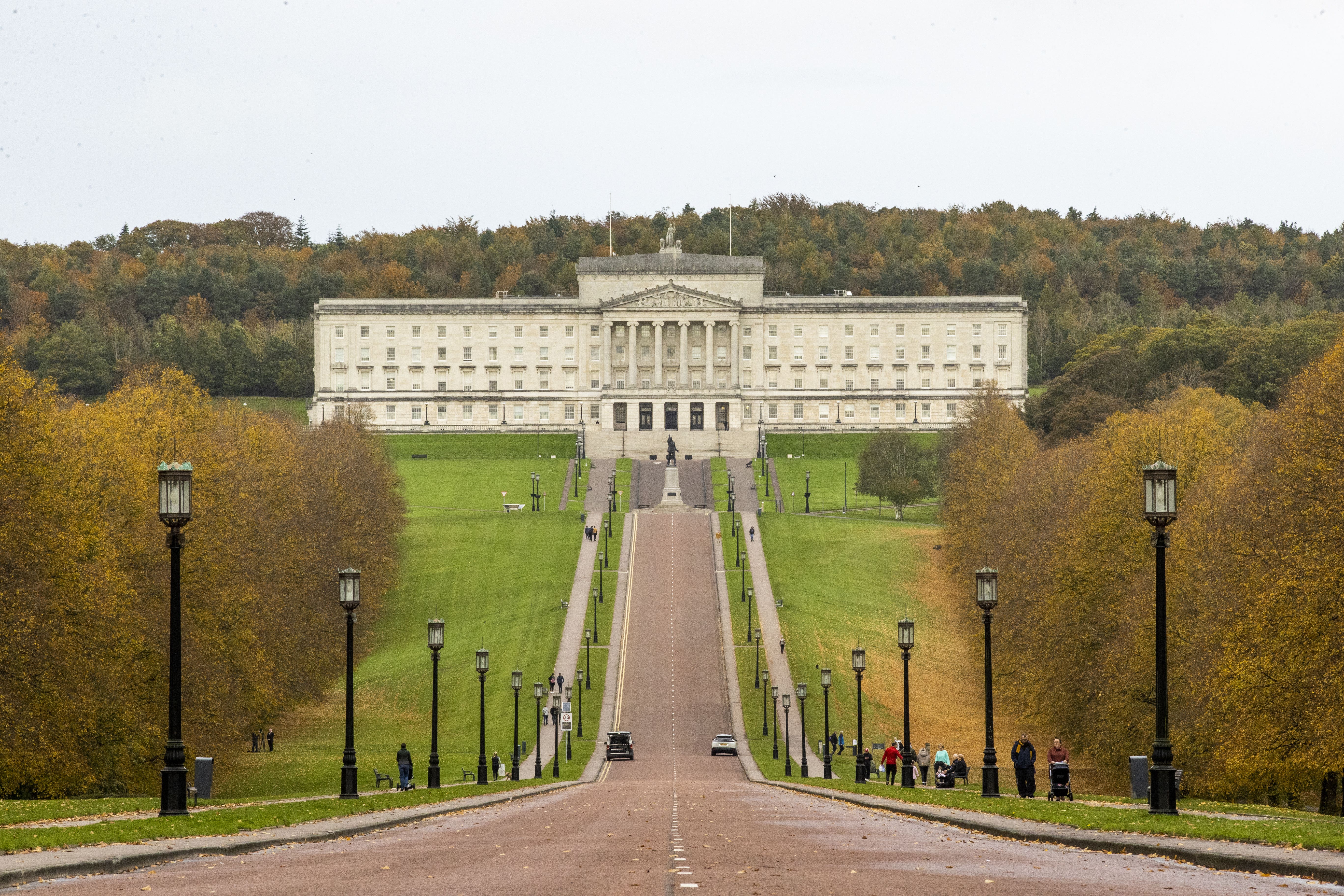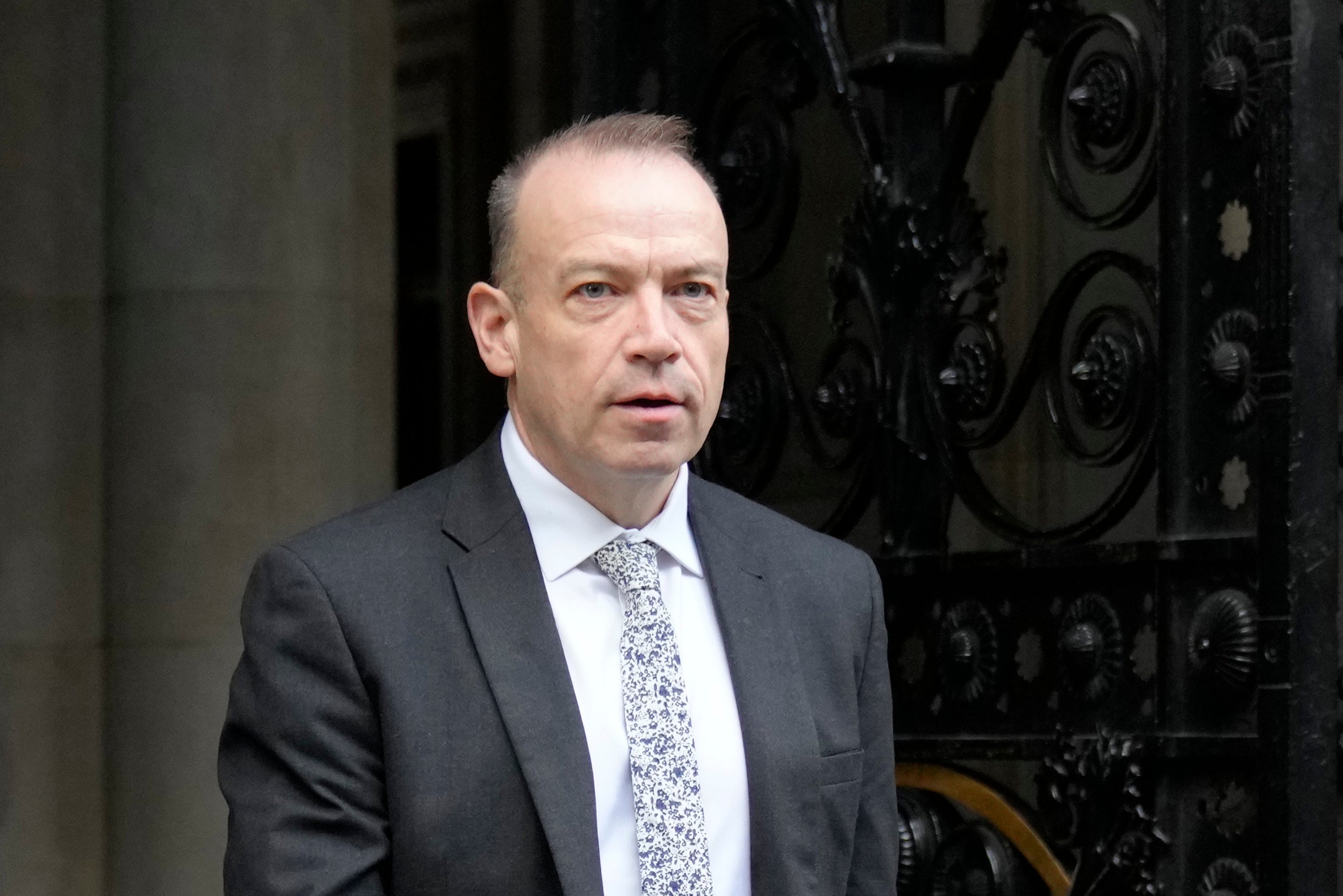Northern Ireland set for Assembly election as deadline passes
NI Secretary Chris Heaton-Harris expected to call election on Friday

Your support helps us to tell the story
From reproductive rights to climate change to Big Tech, The Independent is on the ground when the story is developing. Whether it's investigating the financials of Elon Musk's pro-Trump PAC or producing our latest documentary, 'The A Word', which shines a light on the American women fighting for reproductive rights, we know how important it is to parse out the facts from the messaging.
At such a critical moment in US history, we need reporters on the ground. Your donation allows us to keep sending journalists to speak to both sides of the story.
The Independent is trusted by Americans across the entire political spectrum. And unlike many other quality news outlets, we choose not to lock Americans out of our reporting and analysis with paywalls. We believe quality journalism should be available to everyone, paid for by those who can afford it.
Your support makes all the difference.Northern Ireland is on course for a pre-Christmas Assembly election as the deadline to restore devolved government at Stormont has elapsed.
Northern Ireland Secretary Chris Heaton-Harris is expected to call the election on Friday, following the failure of a last-ditch effort to restore the multi-party executive.
The DUP is blocking the restoration of powersharing as part of its protest against the post-Brexit Northern Ireland Protocol.
A six-month legislative timeframe to form an administration expired in the early hours of Friday.
With no ministerial executive in place, the UK government assumes a legal responsibility to call another election.
While Mr Heaton-Harris has not yet laid out the details, there has been speculation the poll would be held on December 15.
Stormont ministers, who have been operating in shadow form since the Assembly collapsed earlier this year, also ceased to hold office at midnight.
Responsibility for running devolved departments will now pass to senior civil servants.

MLAs met during a recalled sitting of the Assembly on Thursday, but a bid to elect a new speaker – which must be done before the election of first and deputy first ministers – did not proceed as the DUP refused to support the nominations.
The session was then suspended.
The DUP’s boycott of the Stormont institution is part of a campaign of opposition to the protocol, and the party says it will not return to powersharing until decisive action is taken to remove economic barriers on trade between Great Britain and Northern Ireland.
The government has vowed to secure changes to the protocol, either by a negotiated compromise with the EU or through proposed domestic legislation – the Northern Ireland Protocol Bill – which would empower ministers to scrap the arrangements without the approval of Brussels.
DUP leader Sir Jeffrey Donaldson said not enough progress has been made on addressing issues of concern around the protocol.
But Sinn Fein’s Stormont leader Michelle O’Neill said the DUP “have left us all at the mercy of a heartless and dysfunctional Tory government”.
Prime minister Rishi Sunak also urged the DUP to get back to Stormont just hours before the deadline to restore devolution expired.
His official spokesman said: “There’s still time for the DUP and executives to get back to Stormont and we urge them to do so because the people of Northern Ireland deserve a fully functioning and locally elected executive which can respond to the issues facing the communities there.”
The last Northern Ireland Assembly election was held in May of this year, and Sinn Fein emerged as the largest party for the first time.
Meanwhile, the UK government has insisted that in the absence of the Stormont executive, a joint authority arrangement with Dublin for the governance of Northern Ireland is “not being considered”.
Both Ireland’s premier Micheal Martin and Ms O’Neill have said there cannot be direct rule from Westminster in the event of powersharing not being restored.
But an NIO spokesperson said: “The UK government is absolutely clear that the consent principle governs the constitutional position of Northern Ireland.
“We will not countenance any arrangements that are inconsistent with that principle.”